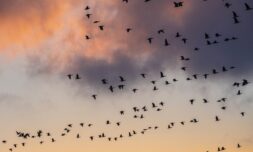From overfishing to biodiversity loss, the seagull population is dwindling. Scientists are urging us to live alongside them, rather than shunning them as pests.
If you live in the UK, it’s likely you’ve had at least one altercation with a seagull.
Members of a larger family of seabirds, they’re most commonly found at the beach, where it’s unspoken knowledge to keep your chips covered.
Notorious for stealing food, the seagull’s tendency for thievery has earned it a sour reputation across Britain.
But what if we’ve gotten it all wrong?
In 2022, Natural England published data revealing that an estimated three quarters of the seagull population were residing in towns and cities countrywide, qualifying gulls as ‘urban creatures.’
According to the public body’s report, more and more of them had begun to nest in built-up areas, prompting a dramatic rise in conflict with humans and calls for increased culling (despite a ban on the removal of their eggs that was introduced two years prior over conservation concerns).
Today paints a different picture, however.
While there’s by no means been a shift in sentiment – the seabirds are still seen as ‘winged menaces’ and ‘noisy, messy, destructive, and greedy scavengers’ – the climate crisis has taken its toll and we’re witnessing a serious decline in gull numbers.
The six main species – black-headed, common, Mediterranean, lesser black-backed, herring, and great black-backed gull – are either amber- or, in the case of the herring gull, red-listed.




















